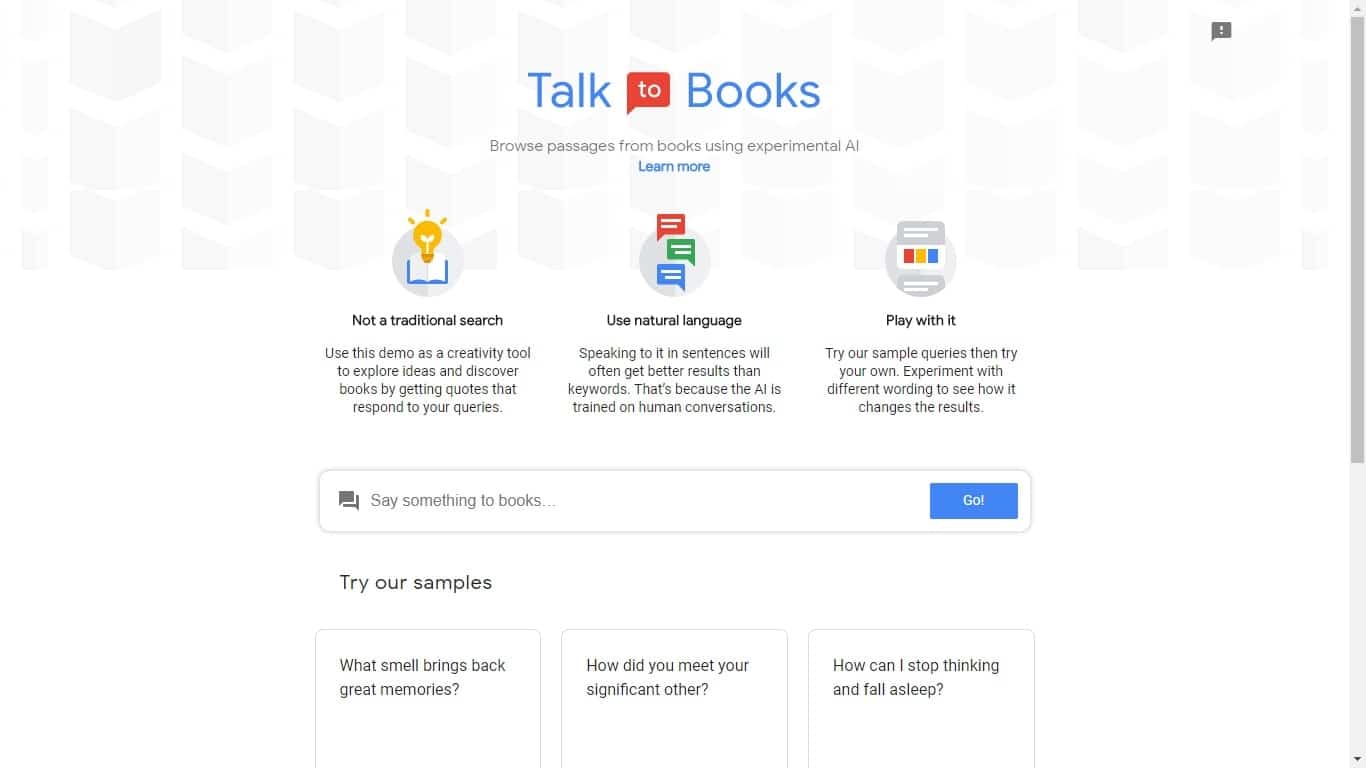With "Talk to Books", Google Wants to Replace English Lit Professors

Google’s developed a new way to ask its search engine research questions, and it could make English Lit classes a breeze.
Talk to Books is Google’s solution to answering fuzzy or nonspecific questions like "What smell brings back great memories?".
From Friday’s blog post:
Natural language understanding has evolved substantially in the past few years, in part due to the development of word vectors that enable algorithms to learn about the relationships between words, based on examples of actual language usage. These vector models map semantically similar phrases to nearby points based on equivalence, similarity or relatedness of ideas and language. Last year, we used hierarchical vector models of language to make improvements to Smart Reply for Gmail. More recently, we’ve been exploring other applications of these methods.
Today, we are proud to share Semantic Experiences, a website showing two examples of how these new capabilities can drive applications that weren’t possible before. Talk to Books is an entirely new way to explore books by starting at the sentence level, rather than the author or topic level. Semantris is a word association game powered by machine learning, where you type out words associated with a given prompt. We have also published “Universal Sentence Encoder”, which describes the models used for these examples in more detail. Lastly, we’ve provided a pretrained semantic TensorFlow module for the community to experiment with their own sentence and phrase encoding.
I’ve been playing around with it for a few minutes this morning. While it was interesting on a tech level, I couldn’t see a practical use for it at first, but then I got into it and I was reminded of my high school English Lit class.
The sample questions provided by Google, and the answers found in the books, remind me of test questions from that class. This could make it a whole lot easier to crib your way through class without learning anything, but at the same time this will be a useful tool for non-native English speakers who want to understand the semantics of a sentence (as opposed to its literal translation).
Literal translations are easy compared to understanding the meaning of a sentence, and Talk to Books might help with that.
Have you tried it yet? What did you think?


Comments
Will Entrekin April 16, 2018 um 8:22 am
"This could make it a whole lot easier to crib your way through class without learning anything"
Then it sounds like exactly the opposite of something that could replace an English lit professor.
Signed,
Former English lit professor
Scott April 16, 2018 um 4:35 pm
You can "talk" to their books, but their books don’t seem to listen. Just a bunch of smoke.
Google Talk to Books – die Zukunft der Buchsuche? | smart digits April 23, 2018 um 9:13 pm
[…] Googles eigener Einschätzung liegt die große Stärke von Talk to Books im Umgang mit unscharfen bzw. unspezifischen Fragestellungen (bei denen der Fragende evtl. selber noch gar nicht konkret weiß, wonach er sucht) – ein […]